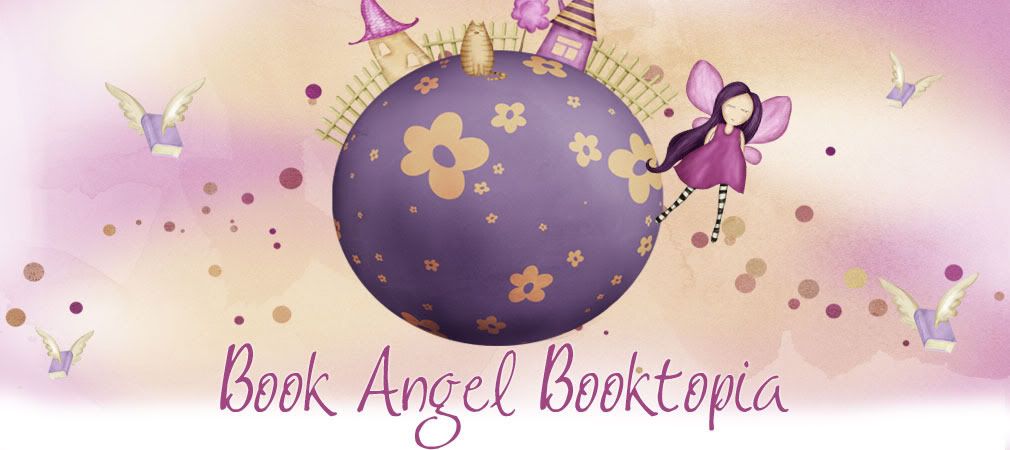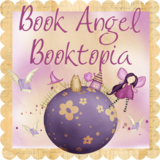Hailed as the new Enid Blyton by my lovely friend Karen at Teenage Fiction for all Ages (you can see the reviews by clicking the link) it is my great pleasure to welcome Helen Moss to Book Angel Booktopia today to talk about the use of pop culture terminology and its longevity in writing. A topic to discuss with Year 9 I think [ ; D ] Over to Helen:
Literally
Random
Towards the end of The Mystery of The Whistling Caves,
twelve-year old Emily Wild is stranded in a deep, dark cave in the cliffs. The
tide is coming in fast. Surely Jack and Scott should have come back down the
secret passage by now? To Emily’s horror, her little dog Drift is almost swept
away. The water has risen much higher than she thought...
Emily’s has
a dilemma. Should she;
(1)
stay
in the cave and wait for the others?
(2)
swim
out and try to raise the alarm?
(3)
crawl
up the secret passage?
I have a dilemma. As Emily plunges
into the freezing water, does she exclaim;
(1)
Yikes!
(2)
OMG!
(3)
None
of the above
You might think that getting the
slang right is a predominantly YA kind of an issue. I’ve read some fascinating
discussions of the pitfalls (and pleasures) of writing teen-speak1.
But I’ve found that some of the same questions bedevil writing for Middle Grade
readers too.
It’s just
so hard to get it right!
While yikes would be my own personal exclamation of choice for a trapped-in-cave scenario every time (yikes just happens to be one of my current
favourite words along with dwindle, thwart, bedevil and crepuscular) - would any self-respecting twelve-year
old allow such a decidedly retro utterance to pass their lips? I might as well suggest Emily cry Gadzooks or Goodness Gracious!
‘Goodness Gracious,
it’s little Doris Frost!’ cried Angela....2
On the other hand, to eschew the old-school
and go down the OMG route, risks the even greater sin of getting it horribly,
embarrassingly wrong. Nothing sparks
the withering glare of pre-teen disdain more readily than an adult trying too
hard to be cool. And even if OMG! were acceptable today, what happens if, in a year’s time, it’s so so-last-week that Emily sounds like a
total twerp? Readers will be too busy sniggering to give a hoot about her
speleological predicament.
I’ve listed below a selection of colloquialisms
that made it past the linguistic bouncers to gain entry to Adventure Island. I make no claim whatsoever to have got the
balance right, but, in general, I’ve been guided by my patented Everyone And Their Mums test3.
To wit, if a word or phrase is one that I’ve actually heard 8-13 year-olds
bandy about in everyday speech AND it’s also used at least on occasion by parents
(without sounding self-conscious and/or ridiculous), then it’s probably both acceptable
to young readers and well-enough
established to have some staying power3.
On these
grounds, words like cool, sad (meaning
pathetic), dead (meaning very), lame (meaning feeble), whatever!, wuss,
wimp and bottle (as in back out) are all in.
I’ve also
allowed mega and epic to make occasional appearances, and also one instance of Chill! (Although I’m already having doubts about this one. As I said, I’m not claiming
to have got the balance right!)
I dithered terribly over Awesome! It still sounds distinctly
American to my ear and I’m not sure it technically passes the Everyone And Their Mums test. But kids say
it all the time so I gave it a special permit.
It was also surprisingly difficult
to settle on an insult or two that brothers can hurl at each other, which are
in current usage (ruling out the delightful blighter
and nincompoop!), not too rude
(ruling out 50% of all known insults) or offensive (ruling out another 49%). I
was tempted by the fabulous molehead,
as overheard being hurled by one of my nieces at her sister in a heated moment
several years ago, but ruled it out on the grounds of obscurity. Finally I
settled on dork, wally, dingbat and idiot,
with the occasional git, and, in extremis, plonker.
And
finally, there’s random. What did we
do before random smashed its way out
of the statistics textbook? It’s ubiquitous from pre-school onwards. Although,
speakers almost never really mean random,
of course. They mean serendipitous
or counter-intuitive or bizarre or vague or paradoxical or sporadic. At a pinch, they might mean pseudorandom (a process that appears to be random but it is not). But literally random? Very rarely.
But that’s OK. I was an experimental
psycholinguist in a previous life and I know that word meanings evolve and
mutate over time. (For example, adventure
once meant a chance happening, silly meant
happy and meat referred to any kind of food. For more recent examples,
consider mouse, twitter and icon). Insisting every word remain tethered
to the meaning it had when freshly coined would be a nonsense. And if we
couldn’t stretch a word beyond its literal meaning, how (non-literally) flat
and (non-literally) pedestrian life would be!3
So, not wanting to leave Emily
stranded in the cave up to her armpits in freezing water a moment longer, what does the poor girl do as the tide rises.
The answer is (2) swim out and raise
the alarm.
But, more to the point, what does
she say. Is it a Yikes! or an OMG moment?
The answer is (3) none of the above.
I played safe and opted for a
wordless gasp.
Helen
PS. I’d
love to know what other Middle Grade writers think about the Yikes vs OMG Dilemma!
Footnotes
(I love
footnotes!)
1 Scott Westerfield of Uglies fame on the Notes from the Slushpile blog is very interesting on this, for
example.
2 Illustration
and quote from That Boarding School Girl,
by Dorita Fairlie Bruce, as presented to my Grandmother by her Aunt and Uncle
in 1934.
3 I’m adopting a conservative
approach here. Although the main characters in Adventure Island are twelve and
thirteen, the books are aimed at readers of around eight to twelve and are
suitable for reading aloud to children as young as six. Now I think about it,
the Everyone and their Mums test might
be useful in reverse for YA books.
For most teenagers, any slang word their parents would comfortably use is, by
definition, cringe-worthily passé and should therefore be denied entry?
4 Although having said that, don’t
get me started on literally. “I literally died when I saw the time.”
No, you didn’t!
















I love Helen Moss! I think she is fabulous and takes me back to my Enid Blyton days.
ReplyDeleteThanks for the shout-out! Helen's visiting TFFAA on Wednesday. I'll be trying the first one on the reading group in a couple of sessions time.
ReplyDelete